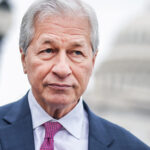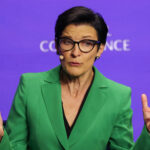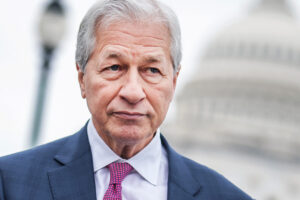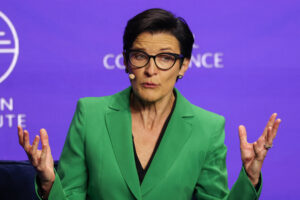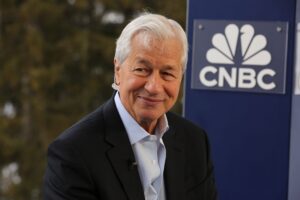
(Bloomberg Opinion) — Will the coronavirus crisis do for the Second Arab Spring what the forces of counterrevolution did for the first? Today is the first Friday since October that the public squares of the Middle East and North Africa will be silent.
In Iraq, the antigovernment protests that have wracked the country for nearly six months were called off last week, when organizers bowed to the inevitable consequence of the pandemic. The Iraqis were only a few days behind the Algerian popular movement, known as Hirak, that ended a year-long streak of Friday protests on March 20. In Lebanon, the virus scare seems to have shut down the anticorruption demonstrations that had previously resisted intimidation from Hezbollah thugs.
The Second Arab Spring was having a good run when the epidemic struck. In Algeria and Sudan, popular protests brought down longtime dictators Abdelaziz Bouteflika and Omar al-Bashir. In Iraq they forced the resignation of one prime minister, Adel Abdul-Mahdi, and headed his successor-designate, Mohammed Tawfik Allawi, off at the pass. Lebanese Prime Minister Saad Hariri was forced to quit, and his replacement, Hassan Diab, was looking shaky within days of taking over.
All this was achieved with comparatively little bloodletting. Attacks on Iraqi protesters left 700 dead, and a bloody crackdown killed more than 100 Sudanese participating in a sit-in; but unlike the cases of Libya, Syria and Yemen, none of the countries that witnessed political upheaval last year descended into civil war.
And yet, in Baghdad, Algiers, Khartoum and Beirut, the sense lingers of a job left unfinished. The political systems in all four countries remain largely intact, in the hands of the elites that enabled the misrule protesters were hoping to end.
That is why Hirak had continued with its Friday demonstrations long after Bouteflika was gone, and a dubious election brought to power one of his former ministers, Abdelmadjid Tebboune. Until last week, Iraqis were keeping up pressure on Mahdi, who is no more effective as a caretaker than he was as a prime minister. The precariousness of Sudanese politics was underlined last week, when Prime Minister Abdalla Hamdok survived an assassination attempt.
As they hunker down to wait out the epidemic, the protesters can’t but worry that the changes they were able to extract from the political elites might yet be undone — that the coronavirus crisis will be used as a cover to restore the old status quo.
In Iraq, for instance, the absence of protests may allow the latest prime minister-designate, Adnan al-Zurfi, to secure the job, even though he has the same failings that made Allawi unacceptable to the protesters: membership in the corrupt establishment and dual nationality. Lebanon’s Diab now has breathing room in which to try and wrangle a bailout from the International Monetary Fund. And there are fears Sudan’s generals will renege on their power-sharing deal with the civilian opposition.
For the protesters, the challenge in this time of social distancing is to stay connected, to remain motivated, and to keep up the pressure on their rulers. The next few weeks will test their ability to adapt their movements to a unique set of circumstances.
They should take a page from the work of Gene Sharp, the American political scientist who enjoys wide following among protest groups of all stripes, from political dissidents to climate-change activists. Sharp’s treatises on nonviolent action — he famously listed 198 forms of resistance — were essential source material for the young protesters who led the first Arab Spring; his work continues to inspire their successors.
Sharp’s devotees elsewhere are already adapting some of his recommendations to the challenge of protest in the time of coronavirus. As scholars Jonathan Pinckney and Miranda Rivers of the U.S. Institute of Peace have pointed out, these range from online petitions (Hong Kong) and demonstrations on Facebook (Israel) to the banging of pots and pans at specific times to show dissatisfaction with the government (Brazil). Climate activists like Greta Thunberg are posting images of themselves holding signs, and using hashtags like #ClimateStrikeOnline.
But online activism is becoming harder to pull off. For one thing, the pandemic tends to dominate discussion, on digital platforms as much as anywhere else. The abundance of misinformation online has made Twitter and Facebook less effective as instruments of organization than they were during the first Arab Spring.
Besides, governments have become smarter about policing the digital public square and suppressing online dissent. Morocco, for instance, has drafted a new law to combat fake news that, activists complain, includes provisions that could infringe on freedom of expression and the right to protest.
Ultimately, the protesters know that digital activism can, at best, help to keep their movements in the public eye. No political system has yet been toppled by an online movement.
In a poignant video message from Baghdad earlier this week, Iraqi protesters promised, “The revolution will be back.” When it is safe to return to the public square, they will have their work cut out for them to regain the momentum lost to the epidemic.
This column does not necessarily reflect the opinion of Bloomberg LP and its owners.
Bobby Ghosh is a columnist and member of the Bloomberg Opinion editorial board. He writes on foreign affairs, with a special focus on the Middle East and the wider Islamic world.
<p class="canvas-atom canvas-text Mb(1.0em) Mb(0)–sm Mt(0.8em)–sm" type="text" content="For more articles like this, please visit us at bloomberg.com/opinion” data-reactid=”33″>For more articles like this, please visit us at bloomberg.com/opinion
<p class="canvas-atom canvas-text Mb(1.0em) Mb(0)–sm Mt(0.8em)–sm" type="text" content="Subscribe now to stay ahead with the most trusted business news source.” data-reactid=”34″>Subscribe now to stay ahead with the most trusted business news source.
©2020 Bloomberg L.P.

